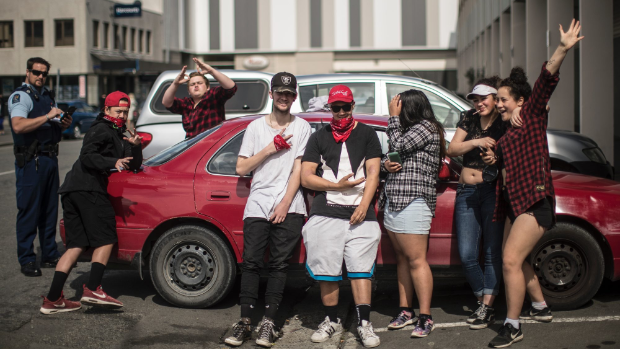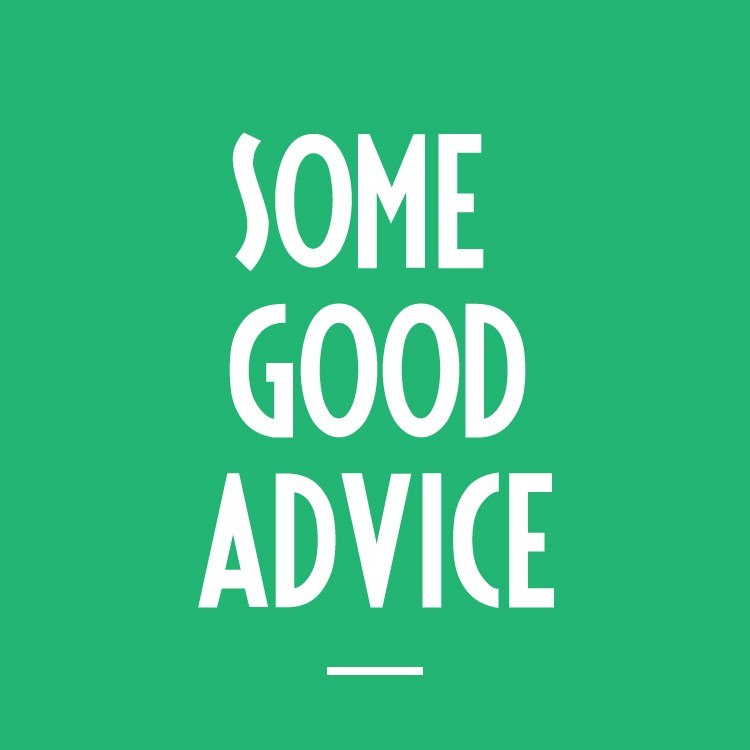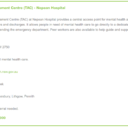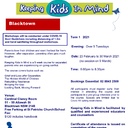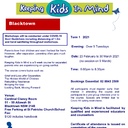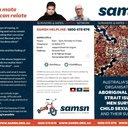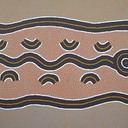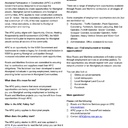-STREET SMART-
KNOW YOUR RIGHTS WHEN DEALING WITH POLICE
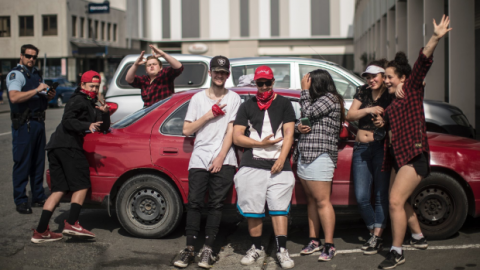
This document tells you what your rights are when you’re dealing with police on the streets in NSW.
If you think the police are not respecting your rights, you should speak to a lawyer or make a complaint. If you are in trouble with police, tell them you want to call the Legal Aid Youth Hotline on 1800 10 18 10 before doing an interview with them or giving them a statement.
What if police approach me?
Always find out why the police want to talk to you. Police can’t take you anywhere unless they arrest you or you agree to go.
If police arrest you, they must tell you:
- that you are under arrest why you are being arrested their name and place of duty
- If the police do not tell you their name and place of duty at the time of the arrest – you should ask them for it.
- If you struggle with or run from the police once they have arrested you, you risk being charged with resist arrest or escape lawful custody.
In public places, on the streets, at the shopping centre, etc.:
You have a right to hang out where you like in a public place, with anyone you like, as long as you’re not harming other people or damaging property.
If you are in a public place, police can only move you if they reasonably suspect you are:
- obstructing people or traffic
- harassing or intimidating people or causing them fear
- obtaining or supplying illegal drugs. intoxicated (drunk) in a public place and are misbehaving in a disorderly manner or posing a risk to public safety or property.
A move on direction for being intoxicated can be for up to 6 hours. If you are found to be intoxicated in the place where the direction was given, or any other public place during the period of the direction, you can be guilty of an offence.
A shopping centre is not a public place but is private property.
You can be directed to leave or even be banned by a security guard.
You have the right to know:
why police are giving you a direction and
what the direction requires you to do, or not do.
If police make a direction, you can simply agree to it, and avoid more hassles.
Remember, it is an offence not to obey a lawful police direction.
If you think the direction is unfair, be sensible and stay calm.
Don’t swear or use violence - if you do, police may arrest you and charge you.
If you believe police have acted unfairly, you can make a complaint.
What if the police ask for identification?
If police ask you for identification, generally you don’t have to give them your details – however, it is usually a good idea to do so.
Not using your real name however can cause problems. In fact, sometimes it may be a real advantage to provide your real name, for example, when you are trying to get bail.
You MUST give your name to police if they request it when you are:
- driving a car
- involved in a car accident
- the driver/owner/passenger of a motor vehicle suspected of being involved in a serious crime.
- under 18 and drinking alcohol in a public place
- reasonably suspected of witnessing a serious crime
- on public transport; or
- suspected of being a defendant in an Apprehended Violence Order
Police interviews and questioning
You do not have to answer police questions even if they:
ask you to go to the station, question you on the spot, or arrest you.
If police ask you to go to the police station to answer questions, you don’t have to go unless you are arrested.
Police must tell you that you don’t need to answer their questions. Always get legal advice before taking part in a police interview or giving a formal statement.
You can ask to call the Legal Aid Youth Hotline on 1800 10 18 10 (free call).
Open 9 am to midnight weekdays and
24 hours Friday to Sunday and public holidays.
If you are under 14, a parent or guardian should be present for police questioning. Otherwise a parent or guardian can give permission for another independent adult to be there.
If you are 14 to 17 years old, and police want to question you, they need your agreement on which independent adult should be present during the interview.
Make sure it is someone you trust but remember that anything you say to your support person is not confidential. This means you should not discuss the
offence with them including what you did or did not do.
If you are uncertain about this, do not agree to that person and ask for someone else.
The independent adult cannot be a police officer.
The independent adult might be a lawyer, family member, youth worker, or a friend who is 18 or older.
Ask to call the Legal Aid Youth Hotline on 1800 10 18 10 before the interview.
Searches
Police must base their searches on “reasonable suspicion”.
Police should tell you why they want to search you. If they don’t, make sure you ask. You should ask for the officer’s name and what police station they are from. The police can ask your consent to be searched. You can say no to this. If the police say they want to search you, you should find out whether they are asking you for your consent or whether they are telling you that you are going to be searched.
Police can stop, search and detain you if they believe you are carrying stolen or illegally obtained items things police believe may be used illegally (eg. tools that can be used to break into houses) or drugs, knives or weapons.
Searches for drugs, stolen items, other things obtained illegally, or things police believe may be used for crime.
Police can pat you down, look in your pockets and bags and search your car. They can also ask you to open your mouth and move or shake out your hair.
Police are not allowed to strip search you in public.
If you refuse to be searched, the police may arrest you and use force to search you. Ask for someone to be present during the search.
It helps if there is someone around to witness your contact with the police. If police use excessive force in searching you, the witness will be able to say what happened.
Searches for knives and weapons
Police can use a metal detector, pat you down and look in your pockets and bags.
It is illegal during an ordinary or ‘frisk’ search for police to ask you to take off your clothes (except your outer clothing) or to look inside your underwear.
Before conducting a search Police must:
show you their police ID if they are not in uniform
give their name and station
tell you why they are searching you
warn you that if you don’t let them search, you’ll be committing an offence.
If you refuse to be searched, you can be fined or ordered to appear at court.
It is more than likely police will search you anyway and they may use reasonable force to do so.
Strip searches
Strip searches are a major invasion of your privacy.
Police can strip search you after you are arrested, but only if they have reason to suspect you are:
hiding important evidence of a crime hiding something dangerous or
hiding drugs or weapons.
When police conduct a strip search, they can ask you to take off all your clothes.
Police should tell you why you are being strip searched.
If you are female you should be searched by a female officer. If you are male you should be searched by a male officer.
Police are not allowed to touch your body during a search.
Police are not allowed to search inside your body. If this happens, you should make a complaint straight away.
You should be strip searched in a private place.
Let your lawyer know about any strip searches. If you don’t have a lawyer contact our Legal Aid Youth Hotline on 1800 10 18 10.
Remember— a strip search is an invasion of your privacy.
It is a power which police must exercise very carefully and responsibly.
Searches by sniffer dogs
In NSW, police can use sniffer dogs to search people for illegal drugs at pubs and clubs that serve alcohol, at sporting events, concerts and parades, and on public transport.
Police do not need a warrant to do these searches. Police can also use sniffer dogs to search people who they reasonably suspect of committing drug offences without a warrant.
But if police want to use sniffer dogs to do general searches for illegal drugs at public places other than those mentioned above, they do need a warrant.
Police must take all reasonable precautions to prevent sniffer dogs from touching the people they search.
If you have any concerns or questions about the use of police sniffer dogs you should contact the Legal Aid Youth Hotline on 1800 10 18 10.
Complaints About Searches
If you believe police haven’t used their search powers properly, you can make a complaint.
Identification line-ups
An identification parade (line up) is where police stand you in a line with other people who look like you and a witness points out who they say is the offender. You should not agree to an identification line up before seeking legal advice or contacting the Legal Aid Youth Hotline on 1800 10 18 10.
Fines
Police can issue on-the-spot fines (called penalty notices or infringement notices) for some types of offences. Examples include carrying knives, disobeying move-on directions, railway offences, and bicycle and traffic offences.
You normally get 21 days to pay the fine. If you do not pay the fine in that time, you will receive a Penalty Reminder Notice. You then have another 28 days to pay.
If you don’t pay the fine by this time, State Debt Recovery (SDR) can make an enforcement order and add fees to your fine.
If you need time to pay, but don’t want to go to court, you can ask SDR to enforce the fine early and you can ask SDR to waive the enforcement fee. You can then pay by instalments.
You can apply for an Internal Review of the fine.
If you think the fine is unfair, you were homeless, (including couch surfing), have issues with alcohol or drugs, are experiencing financial hardship, or mental health issues, have an intellectual or cognitive disability or there were exceptional circumstances, you can ask for a review of the fine.
If the review is successful, SDR will withdraw the fine and you won’t have to pay.
If you elect to go to court, you cannot then ask for a review. You can get help from Legal Aid to ask for a review –
call the Legal Aid Youth Hotline on 1800 10 18 10.
If you want to go to court...
If you receive a fine and you think you are not guilty of the offence, you can choose to take the matter to court.
The court might reduce the fine, get rid of it completely, or give you time to pay by instalments.
On the back of the piece of paper with the fine (infringement notice), you need to fill in your name and address and then mail the notice to SDR. If you do not have a form, you can ask SDR for one. Once this is done, you will get a letter telling you which court to go to. You must attend court on that day.
Legal Aid can provide a lawyer to represent you at court for all matters except for driving matters where you are over 16.
Do not ignore a fine.
You can arrange time to pay with SDR, but if you don’t, SDR can enforce the fine through Community Service, property seizure by the Sheriff, garnishing (taking) money from your bank account, licence suspension and even gaol (if you breach your community service). You cannot be sent to gaol for fines if you were under 18 at the time of the offence and received notice of the fine by the time you were 21.
If the fine is for a traffic offence, SDR will contact Roads and Maritime Services (RMS). The RMS can suspend or cancel your licence and stop you applying for one, unless you were under 18 at the time of the offence. You won’t be able to get your licence until the fines are paid in full or you make a special arrangement with SDR.
Ways to clear your fines
In some circumstances, you can apply to SDR for a Work and Development Order (WDO). You can work off up to $1000 per month on a WDO by doing one, or a combination of the following:
- unpaid work
- receive medical/mental health treatment participate in education/courses
- attend counselling
- get drug/alcohol treatment; or
- be involved in a mentoring program.
Your application must be supported by an approved organisation and you can speak to Legal Aid about helping you find one, or you can search online at www.sdro.nsw.gov.au.
Photos, Fingerprints and DNA
If you are over 14 and you have been charged with a criminal offence, the police can take your fingerprints or a photograph of your face while you are in custody but only if this is necessary to work out your identity. If you are under 14, police need to apply for a court order to do this.
If police want to take your fingerprints or photograph and you are not in police custody, they must apply for a court order if you are under 18.
Police must also apply to a court if they want to take a sample of your DNA. This is usually done by asking for a hair sample or a saliva sample. Saliva samples are collected by swabbing the inside of the cheek.
Police can only apply for an order to take your fingerprints, photo or DNA if they suspect you of committing a crime or have charged you already.
If you are summonsed to court about a police application to take a sample from you, you should see the duty solicitor at court who will give you legal advice and represent you.
If the court orders you to give a sample, you must go to the police station by the date you are given. If you don’t go, the police can use “reasonable force” to get the sample.
If you are 18 or over, different rules apply to you even if the offence being investigated happened when you were a child. You should get legal advice if the police ask you for a sample.
Security guards
Security guards have no more powers than ordinary citizens. They have no power to search or question you.
A security guard cannot:
- search you unless you agree (even when it is a condition of entry to a shop, etc)
- arrest you unless they see you commit a crime
- detain you unless they see you commit a crime
- force you to sign anything
- force you to go anywhere unless they are detaining you until police arrive
- force you to be photographed or use excessive force.
In some places, especially shopping centres, a security guard might ban you from coming in. They do this by giving you a “Termination of Licence” notice.
If you get one of these notices it means you cannot enter that shopping centre until the notice expires, and if you do, you can be charged with trespassing.
Usually, you would be asked to sign it.
You cannot be forced to sign it. You should get legal advice.
If you want to complain about a security guard’s behaviour or about being banned by the shopping centre call the Legal Aid Youth Hotline on 1800 10 18 10 and speak to a lawyer.
Ticket Inspectors
These are officers employed by Transport NSW who patrol trains, stations, ferries and buses.
They used to be called transit officers and are often called Revenue Protection Officers. They are NOT police. They are in uniform and have to carry identification which you are allowed to ask to see.
They have more powers than security guards, but less powers than police.
They can:
Ask to see your ticket while you are on a train, bus, ferry, or on a ferry wharf, beyond the ticket gates in a paid area of a station, or just after leaving it.
Ask for your name and address IF they reasonably suspect that you have committed an offence
Tell you to leave a station or get off a bus if you are committing an offence or causing a nuisance, and tell you you’re not allowed to return for two hours.
They can fine you:
if you don’t have a ticket.
for other offences, like smoking on a train platform, putting your feet on the seat, or drinking alcohol on a train.
if you don’t give them your name or address, or if you give them a false name or address, but only if they reasonably suspect that you have committed an offence
They can’t arrest you or stop you from leaving, unless they see you committing an offence.
There are also police officers who patrol public transport, and these police officers have all the powers of normal police.
How do I make a complaint?
We know it’s hard to make a complaint, but it means an independent person will hear your story.
If you’re having trouble with it, get help from a youth worker at your local youth centre or council, or an adult you trust, or a children’s lawyer at a community legal centre. When you make a complaint about a police officer, be sure to include as much information as possible:
- your name
- your phone number your address
- where you were when you say the police treated you badly
- what time it was
- the names or badge numbers of
- the police involved or a description of what they look like
- the station that they were from what happened
- names of any witnesses and sign it and put the date on it.
If you don’t have all the information, just include what you do know. Even if you’re not sure about some things, call the NSW Ombudsman’s Office to discuss it.
Make the complaint as soon as possible after the incident. Send your complaint to:
NSW Ombudsman’s Office
Level 24, 580 George Street, Sydney 2000
Tel: 9286 1000
Free call: 1800 451 524 (country areas) Email: This email address is being protected from spambots. You need JavaScript enabled to view it.
Always ask to speak to a lawyer before you talk to police. Call 1800 10 18 10.
This publication is intended as a general guide to the law. It should not be relied on as legal advice and it is recommended that you talk to a lawyer about your particular situation.
At the time of printing, the information shown is correct but may be subject to change.
Order publications via the following options: Online www.legalaid.nsw.gov.au/publications
Email This email address is being protected from spambots. You need JavaScript enabled to view it.
Follow us on www.twitter.com/LegalAidNSW
Like us on www.facebook.com/LegalAidNSW
Watch us on www.youtube.com/LegalAidNSW
